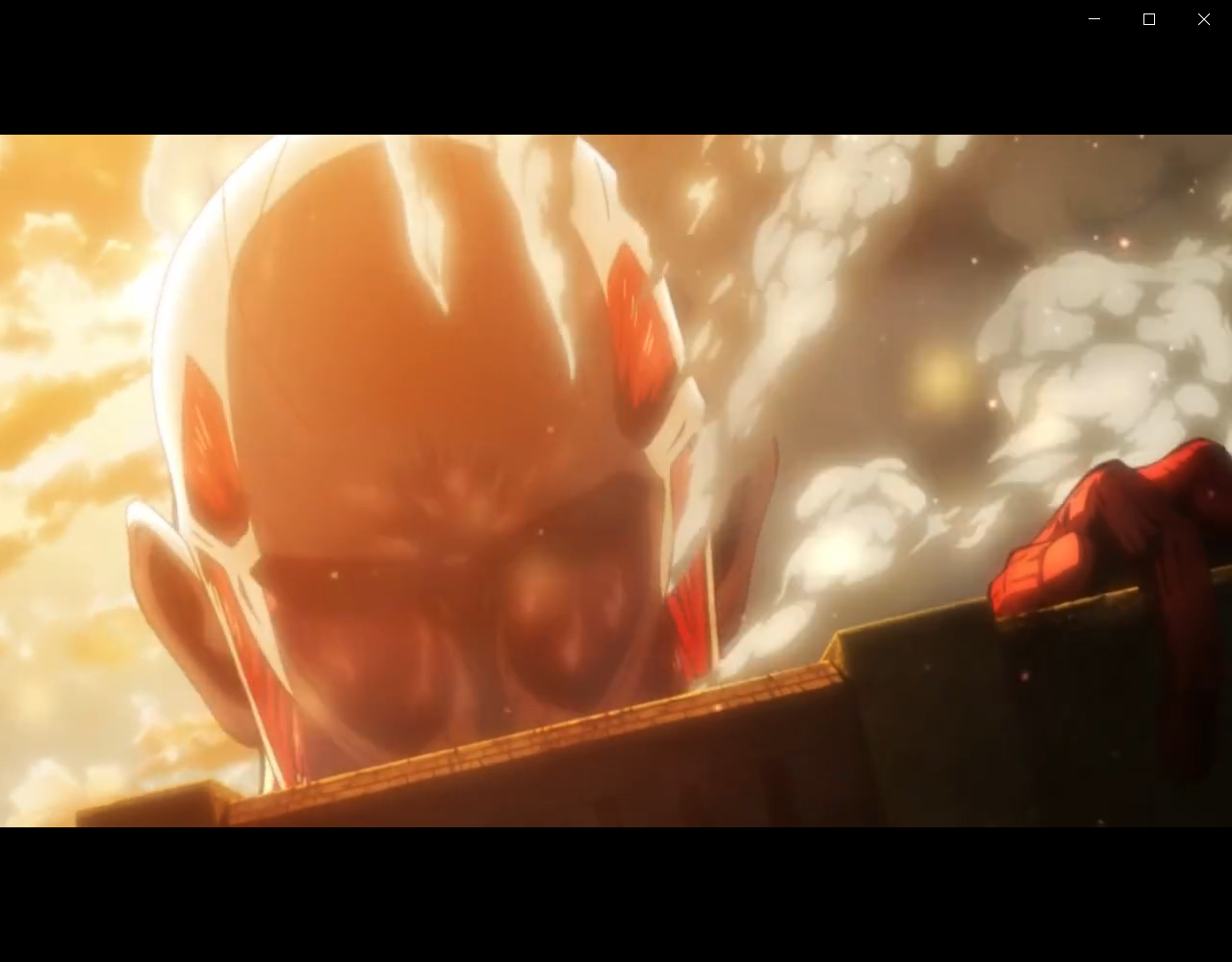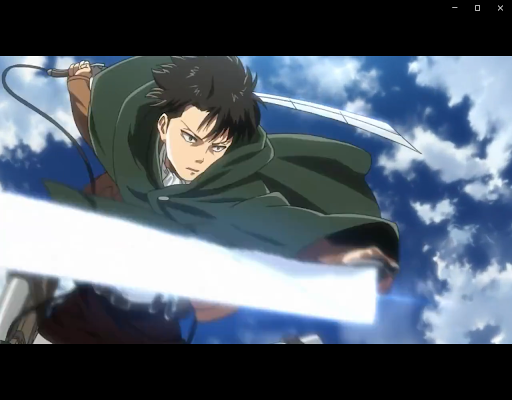TV Review: Attack On Titan
I forgot what aroused my interest in Attack on Titan (AOT for short) over Spring Break, but I decided then to watch the anime and it got out of hand. The characters, the backgrounds, and the stories were so intriguing that I couldn’t help but go through all three seasons in two months. As the characters revealed the truth of their world, my feelings towards the titans changed gradually.
(Spoiler Alert: some screenshots from the anime, summaries of the plot, and discussions of the AOT world setup involved)
To be honest, the first episode of AOT scared me a lot. The Colossal Titan pops out from the top of the fifty-meter-wall, kicks out a hole through the protective wall, and titans swarm into the city. There were people frantically running on the streets, people crushed by falling stones, and people too scared to move. With the solemn background music, it felt like the end of the world.
Knock, knock, I am at your wall now.
The creator of AOT, Hajime Isayama, made the titans share the general outline of humans, walking upright with four limbs, but are not biologically creatures. These human-like–yet–inhuman monsters create an unnerving feeling to us with their loose relation. Furthermore, the titans feed on humans with the same actions as we eat. They remind us of the fear of being dominated by predators, which we have long forgotten.
How to kill a titan.
However, some people like the Survey Corps reject this fear, explore the world outside the walls to learn about titans, and fight valiantly against their enemies, which results in their high casualty rates. It is a visual feast to watch Survey Corps soldiers flying in the sky with their “Vertical Maneuvering Equipment” and slashing at titans’ hindnecks to kill them. They show us the power of the underdog, and my heart cheers at every titan they slain.
Nevertheless, starting from the middle of the first season, a change occurs. The protagonist Eren–who thoroughly hates titans– transforms into a special titan and controls it like a giant robot. When he transforms, he retains some of his human features like hairstyles, similarities which can be found in normal titans as well. In the second season, when two smaller titans fight with each other, their actions resemble naughty children despite the weirdness of their interactions.
In this “childish” play, the black hair titan has just pulled off the grey hair titan’s ear.
With some deeper analysis and the experience of having a comrade with this titan power, the Survey Corps concluded that all titans were once humans. Moreover, they soon learned that outside the walls of the Eldian people is another race called Marley, who hates the minority Eldians in their kingdom. They turn anyone who opposes into a “pure” titan through injection, who can only wander in the wild and instinctively hunt humans, hoping to eat someone with special titan power and revert to people. I felt hard to accept that ultimately, all the titan-fightings was only humanity rising up against and killing its own kin. This twist of the plot overturned the antagonistic roles of titans by telling us they are, too, simply pitiful victims. Again, it is understood that humans are the greatest evil.
However, the Marley kingdom–the origin of evil–was also once the oppressed. In their history, the Eldians were the first people who mastered the power of titans and used it to dominate other races. The Marley overthrew the Eldians, learned to yield their enemy’s weapon for their benefits, and thus became the new overlords. The Marleys were simply repeating history, using titans as the Eldians did to conquer and oppress.
The contract between the devil and an Eldian, the origin of the titan powers.
Many Eldians inside the walls lost their life fighting the titans, but many Marleys and other races also died under Eldian titans. The causes and effects have mingled together as hundreds of years passed, such that it is hard to condemn any side for the start of all evil. Perhaps this realism is why I enjoy Attack on Titan so much. There aren’t any characters that are simply the villains, the oppressors–not even the titans. They all have their own justifications and can be praised if we consider their perspective.
Before watching, I thought humanity was suffering from titans. In the end, I realized that humanity is just suffering from humanity Ultimately, there is no distinction between pure justice and evil.



